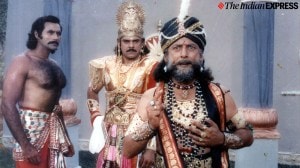Karat lowers red flag: we not against pvt-foreign in airports
Speaking to restive captains of industry today, CPM general secretary Prakash Karat struck a sharply different tune from his predictable one...

Speaking to restive captains of industry today, CPM general secretary Prakash Karat struck a sharply different tune from his predictable one. Saying that his party had no objection to “privatisation of airports”—a significant departure from CPM’s stated line—he tried to tell India Inc that he wasn’t hidebound by ideology.
“We haven’t taken a stand that there shouldn’t be private sector participation or foreign participation in airport projects,” Karat said during an interaction on Inclusive Growth Through Reforms at Assocham today.
This comes just days after the Left protests following the rejection of the Airports Authority of India (AAI) employee forum proposal on modernisation of Delhi and Mumbai airports. That bid failed to meet the standards.
Karat’s response was to a specific question from Air Deccan’s C R Gopinath who said Indian airports were among the most inefficient in the world and even AAI should be in competition with others.
Throughout the interaction, Karat repeatedly protested—following remarks from other speakers—that his objections to issues were ideological. On airport privatisation, he said, “We have no ideological problems here.”
Calling the plan to close down the present Bangalore airport—once the greenfield one comes up—as “ridiculous,” the CPM general secretary underlined that state intervention was necessary for major projects.
He pointed to Changi Airport as an instance of heavy public investment and said this was discussed during his meeting with former Singapore leader Lee Kuan Yew during the latter’s recent visit to India.
On even the issue of disinvestment, he indicated a mind not so closed. “We are prepared to discuss sale of shares in select public sector units.”
But he did not specify whether these would be navratna shares.
He said resources could not be raised for social sector development through PSU sales alone and there needed to be a larger plan on ways to enable that.
Responding to former Agriculture Minister Som Pal and DLF’s K.P.Singh, who was earlier Assocham chief, that Karat’s was perhaps the most influential voice that could force the government to shape policy, he said: “I would like to dispel the impression that we are an influential force with the government. We, like you, are like lobbyists on important matters. Sometimes we succeed, but often we fail.”
On Foreign Direct Invest6ment in retail sector, while he said employment was the central issue and outside agriculture, retail trade had absorbed the surplus agricultural population, he indicated that discussion on the subject was not closed with the Left.
“We have to see how opening up FDI in retail sector impacts others because it may have social repercussions. So we have asked the government to look into this,” Karat said.
He said that Foreign Direst Investment should promote India’s development and geared towards making India a major power in the 21st century.
He explained that the CPM’s objection to the Korean Posco project in Orissa referred only to what he called the indiscriminate export of mineral resources.
Karat said the United Progressive Alliance’s Common Minimum Programme was at the core of the Left’s equation with the government and the Left believed if the Common Minimum Programme was followed there would be corrections on the negative fallout from the reforms process and lead to employment growth, improvements in health and education and growth of agricultural sector.





- 01
- 02
- 03
- 04
- 05


























